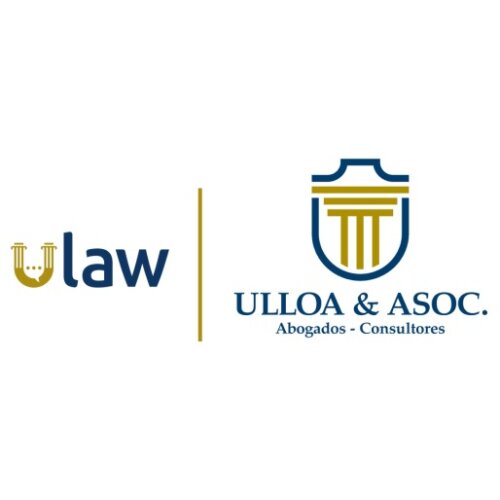Best Child Visitation Lawyers in Honduras
Share your needs with us, get contacted by law firms.
Free. Takes 2 min.
Free Guide to Hiring a Family Lawyer
Or refine your search by selecting a city:
List of the best lawyers in Honduras
About Child Visitation Law in Honduras
In Honduras, child visitation rights are a fundamental aspect of family law designed to ensure that a child maintains a relationship with both parents, even when separated. The legal framework aims to prioritize the best interests of the child, facilitating meaningful access for non-custodial parents while maintaining the child's well-being and stability. The courts typically have the authority to establish visitation schedules if parents cannot reach an agreement.
Why You May Need a Lawyer
Engaging a lawyer knowledgeable in child visitation law can be crucial in several situations. You may need legal assistance if you are experiencing difficulties in establishing a visitation schedule, facing disagreements with the other parent regarding the terms of visitation, or if you believe your child's safety is at risk during visits. Lawyers can also help in enforcing existing court orders or modifying visitation agreements if there are significant changes in circumstances.
Local Laws Overview
In Honduras, family law, including child visitation, falls under the framework of the Family Code and related legislation. Key aspects include the legal principle of the child's best interests, which guides all visitation decisions. The courts assess various factors, including the child's age, health, educational needs, and the emotional bond with each parent. Parents are encouraged to reach amicable agreements, but courts can impose visitation schedules if necessary. Additionally, legal provisions exist to safeguard children from potential harm during visitation periods.
Frequently Asked Questions
What is the primary consideration in child visitation cases?
The best interests of the child are always the primary consideration in child visitation cases in Honduras.
Can visitation rights be denied or restricted?
Yes. If evidence suggests that visitation could harm the child's physical or emotional well-being, courts may restrict or deny visitation rights.
Is it necessary to have a formal agreement for visitation?
While informal agreements can work, a formal court-ordered visitation schedule is advisable to ensure enforceability and clarity should disputes arise.
Who is entitled to request visitation rights?
Typically, non-custodial parents request visitation rights. However, other family members, like grandparents, may petition if they have acted as primary caregivers or have a strong bond with the child.
How can visitation orders be enforced?
Through legal action. If a visitation order is being violated, the court can enforce compliance by issuing legal penalties or modifying custody arrangements.
Can visitation schedules be modified?
Yes. Visitation schedules can be modified if there is a significant change in circumstances that affects the child's best interests, such as relocation or changes in the parent's ability to care for the child.
Are there mediation options available in visitation disputes?
Yes. Mediation is encouraged as it helps parents reach amicable solutions without lengthy court battles, which can be stressful for the child.
What should I do if I suspect abuse during visitation?
Immediately report your concerns to law enforcement and seek a lawyer’s advice to address the situation through legal channels.
What happens if the custodial parent refuses visitation?
If a custodial parent unjustifiably refuses visitation, the non-custodial parent can seek legal recourse through the courts to enforce the visitation order.
Can a child refuse visitation?
While a child's wishes may be considered, they do not have the absolute right to refuse visitation. The court will evaluate the reasons and make decisions based on the child's best interests.
Additional Resources
For those seeking further information or assistance in Honduras, consider contacting the Family Court system within your jurisdiction. Additionally, the Honduran Institute for Children and Family (IHNFA) can provide guidance on child welfare and legal rights.
Next Steps
If you need legal assistance concerning child visitation, it is recommended to consult with a family law attorney who specializes in this area. They can provide specific guidance tailored to your situation, help you understand your rights and obligations, and represent you in any legal proceedings. Begin by gathering any relevant documentation, such as previous court orders or communication with the other parent, to provide your lawyer with a comprehensive overview of the case.
Lawzana helps you find the best lawyers and law firms in Honduras through a curated and pre-screened list of qualified legal professionals. Our platform offers rankings and detailed profiles of attorneys and law firms, allowing you to compare based on practice areas, including Child Visitation, experience, and client feedback.
Each profile includes a description of the firm's areas of practice, client reviews, team members and partners, year of establishment, spoken languages, office locations, contact information, social media presence, and any published articles or resources. Most firms on our platform speak English and are experienced in both local and international legal matters.
Get a quote from top-rated law firms in Honduras — quickly, securely, and without unnecessary hassle.
Disclaimer:
The information provided on this page is for general informational purposes only and does not constitute legal advice. While we strive to ensure the accuracy and relevance of the content, legal information may change over time, and interpretations of the law can vary. You should always consult with a qualified legal professional for advice specific to your situation.
We disclaim all liability for actions taken or not taken based on the content of this page. If you believe any information is incorrect or outdated, please contact us, and we will review and update it where appropriate.
Browse child visitation law firms by city in Honduras
Refine your search by selecting a city.
















